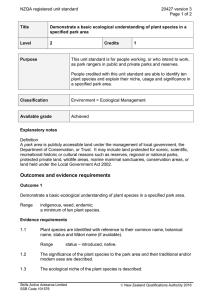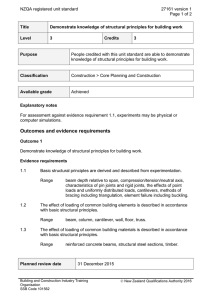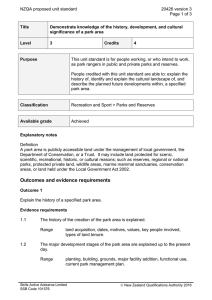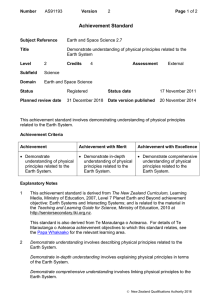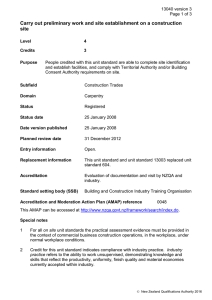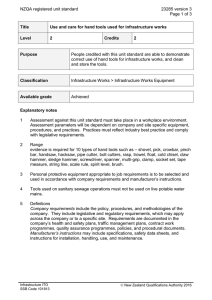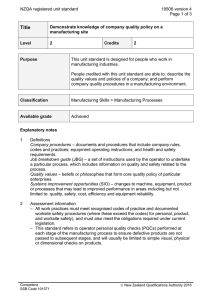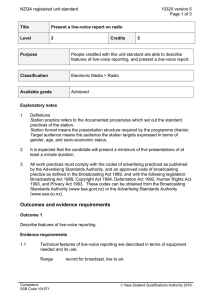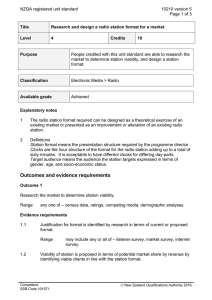NZQA registered unit standard 20668 version 3 Page 1 of 2
advertisement
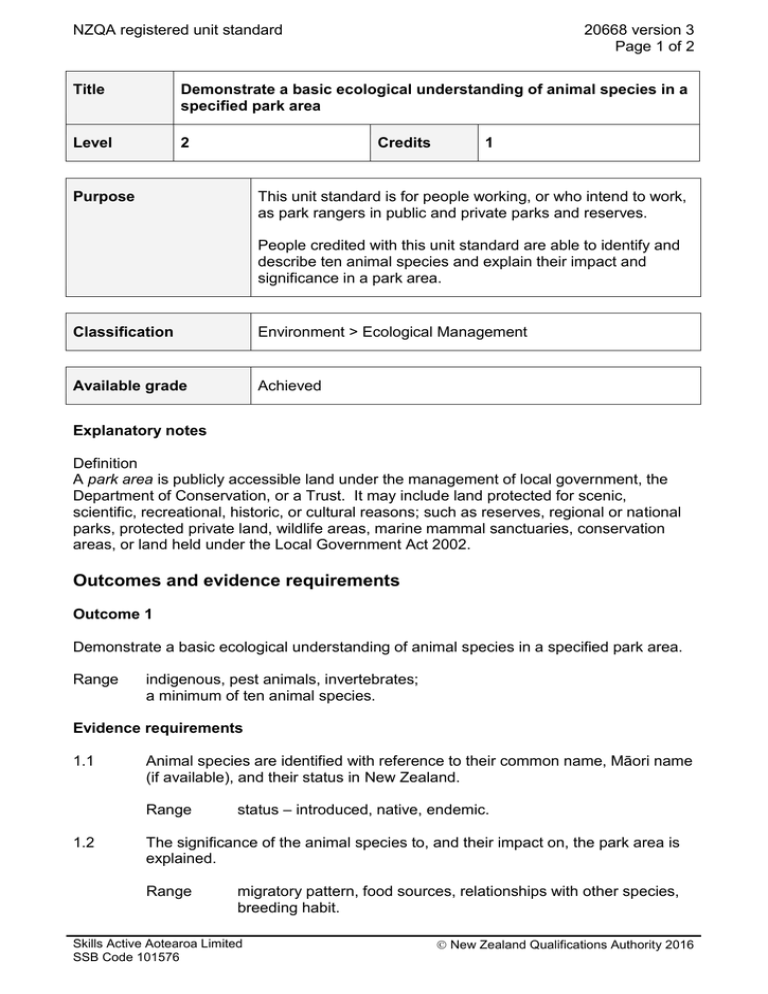
NZQA registered unit standard 20668 version 3 Page 1 of 2 Title Demonstrate a basic ecological understanding of animal species in a specified park area Level 2 Credits Purpose 1 This unit standard is for people working, or who intend to work, as park rangers in public and private parks and reserves. People credited with this unit standard are able to identify and describe ten animal species and explain their impact and significance in a park area. Classification Environment > Ecological Management Available grade Achieved Explanatory notes Definition A park area is publicly accessible land under the management of local government, the Department of Conservation, or a Trust. It may include land protected for scenic, scientific, recreational, historic, or cultural reasons; such as reserves, regional or national parks, protected private land, wildlife areas, marine mammal sanctuaries, conservation areas, or land held under the Local Government Act 2002. Outcomes and evidence requirements Outcome 1 Demonstrate a basic ecological understanding of animal species in a specified park area. Range indigenous, pest animals, invertebrates; a minimum of ten animal species. Evidence requirements 1.1 Animal species are identified with reference to their common name, Māori name (if available), and their status in New Zealand. Range 1.2 status – introduced, native, endemic. The significance of the animal species to, and their impact on, the park area is explained. Range migratory pattern, food sources, relationships with other species, breeding habit. Skills Active Aotearoa Limited SSB Code 101576 New Zealand Qualifications Authority 2016 NZQA registered unit standard 20668 version 3 Page 2 of 2 1.3 The habitat and ecological niche of the animal species are described. 1.4 Threats to the animal species and/or the threats it poses to other species are described. 1.5 Current park management policies and/or feasible practices used to conserve or eradicate the animal species are described. Planned review date 31 December 2014 Status information and last date for assessment for superseded versions Process Version Date Last Date for Assessment Registration 1 22 March 2004 31 December 2011 Rollover and Revision 2 12 February 2010 31 December 2011 Review 3 9 December 2010 N/A Accreditation and Moderation Action Plan (AMAP) reference 0099 This AMAP can be accessed at http://www.nzqa.govt.nz/framework/search/index.do. Please note Providers must be granted consent to assess against standards (accredited) by NZQA, or an inter-institutional body with delegated authority for quality assurance, before they can report credits from assessment against unit standards or deliver courses of study leading to that assessment. Industry Training Organisations must be granted consent to assess against standards by NZQA before they can register credits from assessment against unit standards. Providers and Industry Training Organisations, which have been granted consent and which are assessing against unit standards must engage with the moderation system that applies to those standards. Consent requirements and an outline of the moderation system that applies to this standard are outlined in the Accreditation and Moderation Action Plan (AMAP). The AMAP also includes useful information about special requirements for organisations wishing to develop education and training programmes, such as minimum qualifications for tutors and assessors, and special resource requirements. Comments on this unit standard Please contact Skills Active Aotearoa Limited info@skillsactive.org.nz if you wish to suggest changes to the content of this unit standard. Skills Active Aotearoa Limited SSB Code 101576 New Zealand Qualifications Authority 2016
